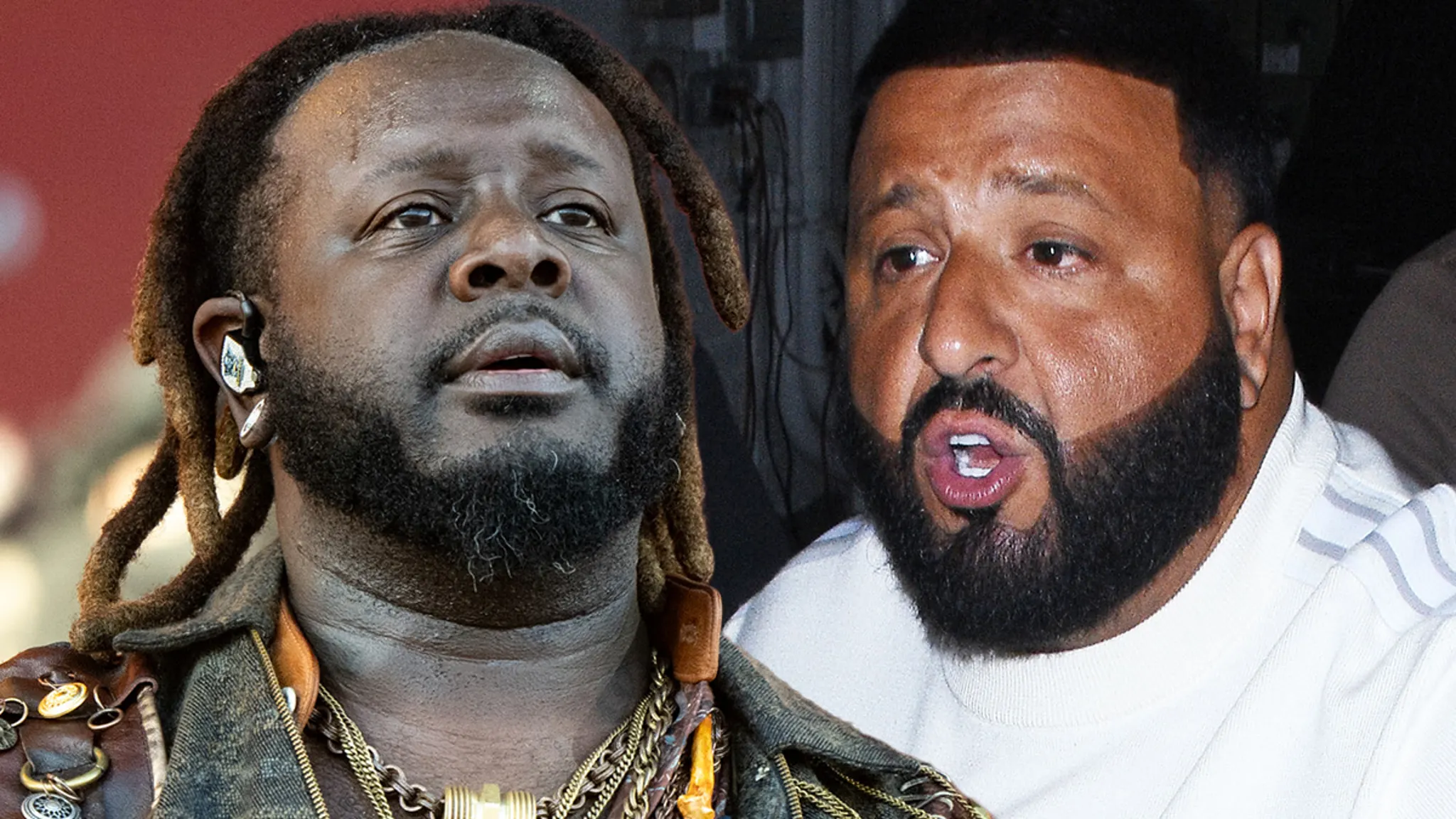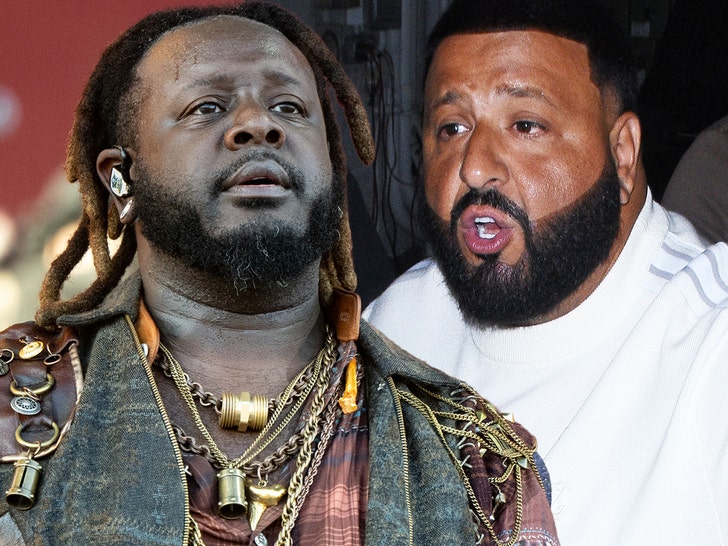Entertainment
T-Pain Tells Shannon Sharpe That DJ Khaled Was a Fake Friend

T-Pain
F*** DJ Khaled …
Take That ‘Brother’ BS Somewhere Else!!!
Published
|
Updated
T-Pain stopped appearing on DJ Khaled albums all the way back in 2013 — he’s calling it an act of betrayal, after he propelled Mr. “We The Best” to platinum status!!!
On the latest episode of “Club Shay Shay”, Shannon Sharpe simply asked T-Pain what’s the one lesson he learned as he approaches his debut album’s 20th anniversary … a0nd T-Pain immediately brought up DJ Khaled.
Waiting for your permission to load the Instagram Media.
T-Pain says the most invaluable lesson he learned was that nobody is your brother — especially those who always tell you they are!!!
It’s crazy to hear their partnership corrode like this … T-Pain actually helped Khaled earn his FIRST-EVER Platinum plaque back in 2008 through their “I’m So Hood” anthem, but the chili peppers are now under the bridge.

TMZ.com
We just caught Khaled out promoting his upcoming album … which once again, will go T-Pain-less on the track list. 💔











